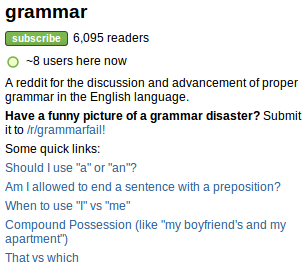Depopularization in the limit
George Orwell, in his hugely overrated essay "Politics and the English language", famously insists you should "Never use a metaphor, simile, or other figure of speech which you are used to seeing in print." He thinks modern writing "consists in gumming together long strips of words which have already been set in order by someone else" (only he doesn't mean "long") — joining togther "ready-made phrases" instead of thinking out what to say. His hope is that one can occasionally, "if one jeers loudly enough, send some worn-out and useless phrase … into the dustbin, where it belongs." That is, one can eliminate some popular phrase from the language by mocking it out of existence. In effect, he wants us to collaborate in getting rid of the most widely-used phrases in the language. In a Lingua Franca post published today I called his program elimination of the fittest (tongue in cheek, of course: the proposal is actually just to depopularize the most popular).
For a while, after I began thinking about this, I wondered what would be the ultimate fate of a language in which this policy was consistently and iteratively implemented. I even spoke to a distinguished theoretical computer scientist about how one might represent the problem mathematically. But eventually I realized it was really quite simple; at least in a simplified ideal case, I knew what would happen, and I could do the proof myself.
Read the rest of this entry »
Permalink Comments off
